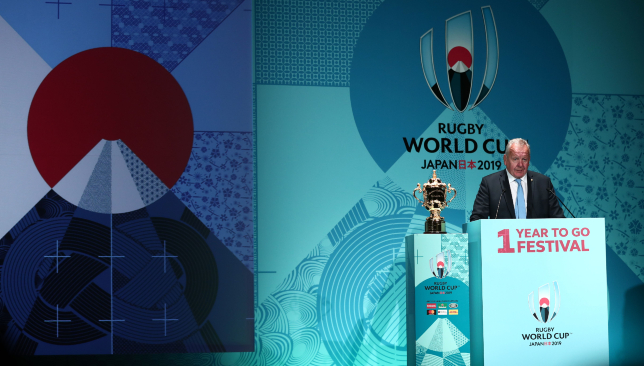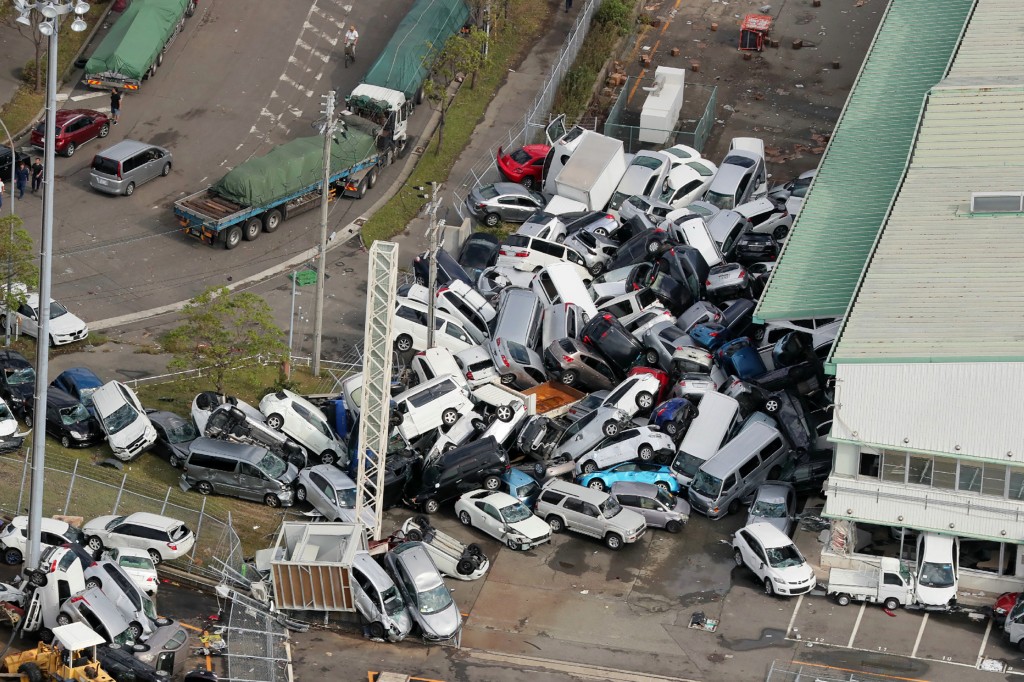
Extensive contingency plans have been drawn up for the 2019 World Cup as Japan reels from the recent spate of natural disasters that could also strike during the tournament.
Earlier this month the nation endured its strongest typhoon for 25 years that caused tidal surges and flooding in the west of the country, killing at least 11 people and leaving scores injured.
Worse was to follow when a 6.7 magnitude earthquake in the north initiated landslides in which 39 people lost their lives, including in Sapporo where England launch their World Cup against Tonga on September 22 next year.
In June there was an earthquake in Osaka, and July was scarred by flash flooding and a heatwave in which many more perished.
But while Asia’s first staging of the tournament presents unique challenges to the organisers, head of Rugby World Cup Alan Gilpin insists comfort can be taken from the hosts’ readiness for all eventualities.
“It’s a real hot topic for us right now. Teams will be arriving next year at a time when in this year Japan has experienced a pretty significant typhoon and earthquake,” Gilpin said.
“We are planning right through from what happens if a team hotel or training venue is lost to what happens if one or more match venues are lost. We are working through all these scenarios.
“It’s a complex piece and something we would do for every tournament, but this one has a heightened sense of realism to it. We have to take it seriously.
“But there’s also a heightened sense of comfort that Japan deals with these issues all the time. It’s not as though we’re dealing with a one-off here. As they very calmly tell us, they have 480 earthquakes a year.
“Their venues and hotels are built to withstand incredible adverse conditions. What you tend to see in Japan is generally it’s older buildings and structures that are affected when they have either earthquakes or typhoons.”

Vehicles piled in a heap due to strong winds in Kobe, Hyogo prefecture on September 5, 2018.
The ability to adapt to any severe weather event does not extend to changing host nation or extending the time-frame of the competition, however.
“If you look at types of events that have affected Japan and you think about the scale, it would be unprecedented even in Japan for something to effect that nationwide spread,” Gilpin said.
Aside from the threat of catastrophic weather events, organisers are being forced to address another unique challenge – the perception of tattoos among a public who see them as identifying a member of organised crime called Yakuza.
Jack Nowell and Courtney Lawes are two England players who are heavily tattooed, but it is Pacific Islanders who are the most extensively inked.
“We will make the public aware that people with tattoos in a World Cup context are not part of the Yakuza. That’s where the issue comes from,” Gilpin said.
“We have done a lot in the last year or so with the teams to get them to understand that.
“The idea of putting a rash-vest on in the pool or in a gym, they will buy into as they want to respect the Japanese culture. We’ll position it as self-policing.”